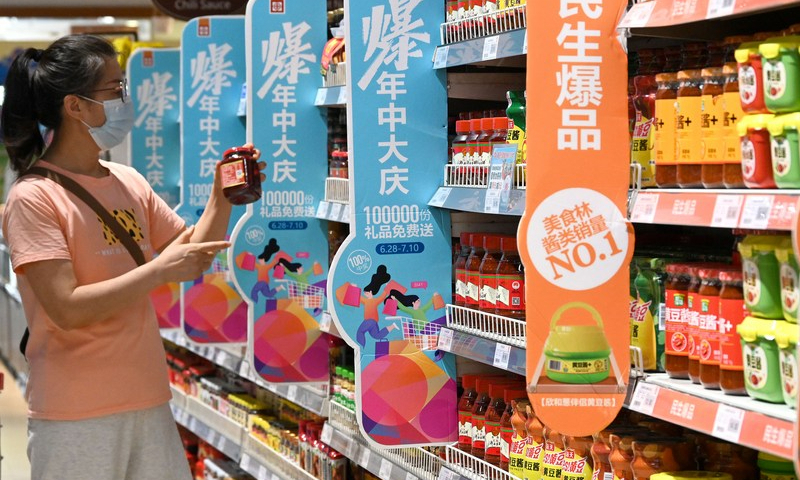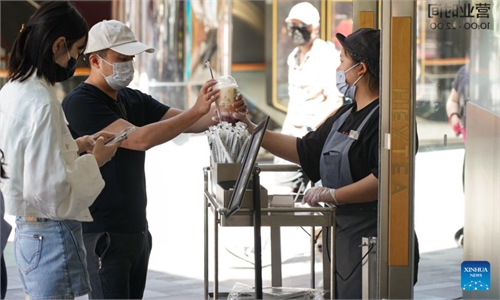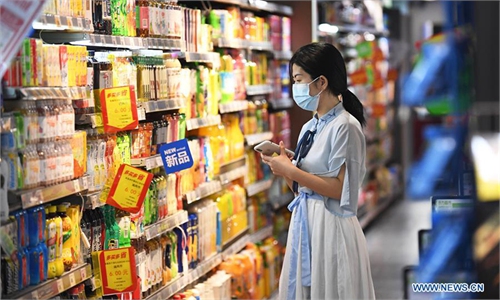China’s retail sales expand 2.7% year-on-year in July; more measures to rev up economy expected

A woman shops at a supermarket in Congtai District of Handan, north China's Hebei Province, July 9, 2022.
Chinese authorities have been strengthening measures to bolster domestic demand, as the country's retail sales growth rate decelerated in July, mainly dragged down by catering consumption amid COVID-19 flare-ups.
China's retail sales stood at 3.58 trillion yuan ($530 billion) in July, expanding 2.7 percent year-on-year, data from the National Bureau of Statistics (NBS) showed on Monday. The growth rate is slower than the 3.1 percent year-on-year growth seen in the previous month, but still expanding 0.27 percent month-on-month.
Falling sales in the catering mainly contributed to the nation's slower retail sales growth for the month, while the property market also has some impact. According to the NBS, the country's catering revenue stood at 369.4 billion yuan in July, down 1.5 percent year-on-year. In the meantime, retail sales of home appliances dropped 6.3 percent year-on-year last month, while construction and decoration fell 7.8 percent year-on-year.
Fu Linghui, a spokesperson from the NBS said at a press briefing on Monday that China's property market continued on a downward trend and is bottoming out.
"Along with the mechanism that aims to foster long-term development of the real estate industry and city-specific policies, the country's property market is expected to gradually stabilize and maintain steady and heathy development. The impact on the economy will gradually subdue," Fu said.
Amid headwinds caused by sporadic COVID-19 resurgences and external uncertainties, China has ramped up efforts to bolster its domestic economic recovery. Chinese Premier Li Keqiang stressed at a State Council executive meeting at the end of July that consumption should still be the main driver for stabilizing growth, vowing more measures in the second half of the year to further strengthen demand, starting with big-ticket consumer goods.
Apart from promoting the real estate sector and vehicle sales, the meeting also called for the implementation of supportive policies for pandemic-hit industries including catering, retail and tourism, and the extension of extra value-added tax deductions for services.
On Monday, the People's Bank of China, the country's central bank, lowered the rate on 400-billion-yuan worth of one-year medium-term lending facility (MLF) loans to some financial institutions by 10 basis points (bps) to 2.75 percent, from a previous 2.85 percent.



